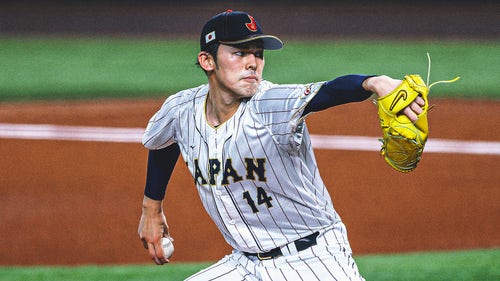
TIME TO SPEAK UMP - MEN IN BLUE MUST BE HELD ACCOUNTABLE
EXPANDING instant replay is a necessary step to help the on-field officiating of games. But, obviously, it is a giant step that will require further consideration and negotiation.
So before that giant step let's take a baby step: Let's make the umpires more accountable. Let's make sure that when they make a disputed call that they have to do what every other faction of the game does: Explain it publicly.
When, for example, Twins manager Ron Gardenhire sticks with a wilting Francisco Liriano at a critical juncture of AL Division Series Game 1, he takes questions and provides insight into his decision. He doesn't love doing it, but considers it a part of his job. More to this point, when there is a critical call in a playoff game everybody involved - pitchers, hitters, coaches, managers - discuss their view of the play.
Except the umps. In each of the first two games of the Yankees-Twins division series, there was a critical call late in the game that was very likely botched. In both instances, the umpire who made the call did not speak to the media and, therefore, did not speak to the fans. Worst of all, the umps hid with the blessing and protection of Major League Baseball.
Game 1 should have ended on an excellent shoestring catch by defensive replacement Greg Golson. But right-field ump Chris Guccione mistakenly ruled a trap. That enabled the Twins to bring their home run leader, Jim Thome, to the plate as the tying run. He popped out to end the game.
Afterward two reporters went to the umpires' room to interview Guccione. They were intercepted by umpire supervisor Larry Young who said: "We don't comment on judgment calls."
Which means they don't comment, since all calls are judgments. This is not a longstanding policy. I have spoken to plenty of umpires over the past 20-plus years about judgment calls. This current policy was installed by Frank Robinson, who in June was named MLB's senior vice president responsible for overseeing the umpires.
Robinson did not respond to an e-mail seeking an interview on this subject. I have been told Robinson is trying to protect the umps. But I would ask, from whom? The most memorable moment of the 2010 season was when Jim Joyce blew Armando Galarraga's perfect game with a bad call at first base. What made it memorable was Joyce's postgame accountability over, yes, a judgment call. A horrible moment for umps became a positive one because Joyce humanized the profession, demonstrated how much he aches to get the calls right.
Baseball management, players and umpires will have another summit on the state of umpiring on Dec. 3, just ahead of the start of the winter meetings.
MLB officials also wonder why umps should be made available to explain their calls when referees in the NBA and NFL are not. Well, this is the "my neighbors aren't holding their kids to high standards so we won't either argument." Also, the NFL uses extensive replays to get calls like the one Guccione messed up right. As for the NBA, maybe if its officials had to explain themselves then the league would not have been Tim Donaghy-ed.
There is no widespread concern currently about major league game fixing. But trust in the umps' abilities and standards are cratering, triggered by their abysmal work in the 2009 postseason followed by their controversial calls in five of the first six division series games this year.
That included Game 2, Thursday night. Lance Berkman appeared to have struck out on a 1-2 Carl Pavano pitch in the seventh inning. But home-plate ump Hunter Wendelstedt ruled a ball. Berkman crushed the next pitch for an RBI double that put the Yankees ahead for good.
In general, borderline pitch calls do not draw such scrutiny during the regular season. But this is the postseason and, more important, there was a history of bad blood between Wendelstedt and Gardenhire, who was ejected by Wendelstedt before the next pitch of the game.
After the game, Gardenhire answered questions about the call and his relationship with Wendelstedt. Meanwhile, a league official announced during the game - before the questionable call - that the umpires were off-limits to the media and that, if necessary, a pool reporter would be designated to speak to the umps. In this case, only a reporter from Minnesota (not also one from New York) was assigned the postgame task. The reporter was not provided Wendlestedt, but instead crew chief Jerry Crawford, who was in right field.
Crawford's disdain for the task came through in three non-revealing answers that totaled seven words. Again, who does this help? The fans - the fuel of the game - are left without satisfactory answers to issues that come up during the highest-profile games of the season. The umps come off as indifferent or worse. And MLB is seen as countenancing different rules of accountability for the umps.
The message is horrible. The Commissioner's Office should take a look at this decision on instant replay, and change it.










